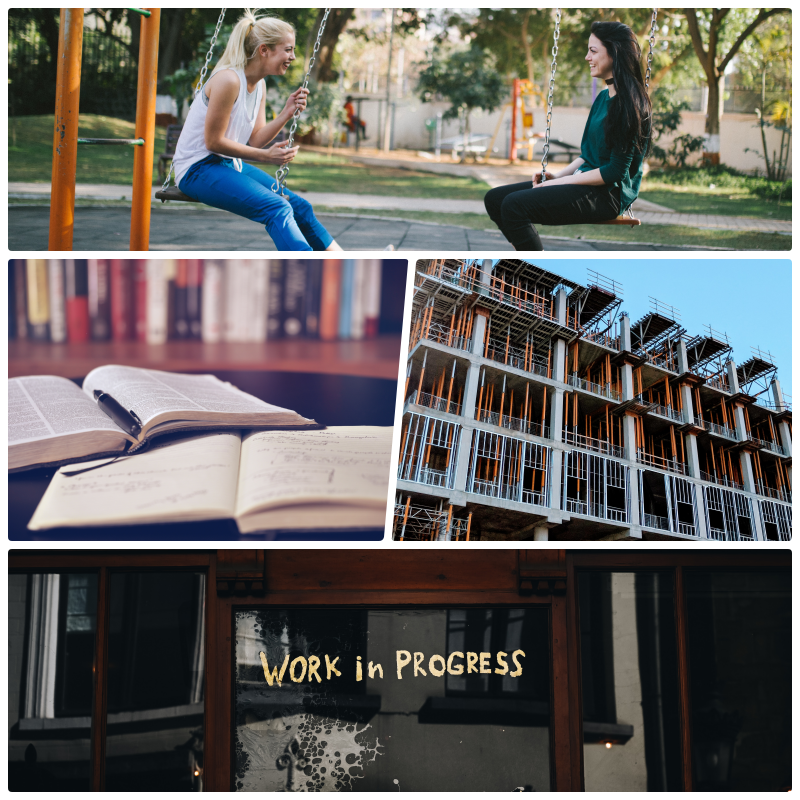An Adventure in German Healthcare
One of the many assumptions I made before having children, was that on the birth of my first child, an invisible shutter would slam down between my new life as a father, and my old life of a 30-something who had time for interests and spontaneous fun. While I now know that having children is anything but boring, I was correct in my belief that spontaneity is no friend to the parents of small children. Being impulsive is still possible, it’s just that parents tend to outsource that particular joy to their kids, rather than adding their own layers of chaos. If my experience is typical, and I’m not exactly sure it is, life seems to become a blur of appointments, Kindergarten runs, and extracurricular activities, all planned in advance, and all marked in some kind of novelty calendar.
I probably should have expected that Germany’s love of planning and punctuality would catch up with me eventually, but even when it did, I was so busy wrestling babies into high chairs or preventing toddlers from jumping through plate glass windows to really notice. Moreover, the shift from a life less ordinary to one planned months in advance doesn’t happen overnight. Like the proverbial boiled frog, it can take time to realise just how much life has actually changed. Personally, I hadn’t appreciated how regimented my life had become until one sunny afternoon, while making my way up the staircase, I was gripped by an intense stabbing pain in my lower back. As my legs buckled underneath me, and I instinctively began a slow and painful progression to the fetal position, the only thought rushing through my mind was ‘Well, this is something different’.
Any health issue is concerning, but throughout my time living in Germany I’ve found that a health scare in a different country can be packed with extra anxieties. The most obvious is language: Will I be able to explain exactly what the problem is or will I wake up six weeks from now missing some vital part of my anatomy because I didn’t use the correct noun and verb endings? This can be a tricky proposition in the calmest of situations, but in an emergency, with panic setting in, the last thing you want to have to concern yourself, with as the pain shoots around your body, is whether you’re nailing the pronunciation of “Heilige Scheiße, ich glaube, meine Wirbelsäule versucht, aus meinem Körper zu entkommen”.
Luckily, and I’m using the term as loosely as possible, the most extreme pain subsided rather quickly, meaning I could at least speak. It also meant I could forgo the need for an ambulance. Instead, we prepared for the imminent arrival of the Notarzt (emergency doctor). My only experience of a Notarzt up to that point was moving out their way when their blue lights flashed in my car’s rear view mirror. Now though, I would get to see what all the fuss was about for myself, a front row ticket to my own German medical emergency. Soon enough, the doorbell rang and I was welcoming one into my living room. Well, perhaps welcoming isn’t the correct term. It's hard to be a good host from a prone position on the floor, but I assure you it was as welcoming as I could manage.
As I heard my wife talking with the Notarzt in the hallway, I checked to make sure my health insurance card was within my reach. Anticipating my need, my wife had placed the card on the floor next to me, ready to present when the doctor finally entered the room. This is one of the aspects of German healthcare I still find difficult to get used to, even after years of living here. In all my time living in the UK, I don’t think anyone ever asked to see my National Insurance card, or if they did, what exactly they’d do with it, but here in Germany, from the dentist to the hospital, the first question any potential patient will be asked is ‘Do you have your insurance card?’. Once presented, the card is then scanned using a device that always looks like the first iteration of a chip and pin scanner. When the Notarzt did finally walk into the room, they began an immediate assessment, completely ignoring my pathetically outstretched hand that was clinging to my card like some slowly deflating life preserver. I suppose I should’ve been reassured that he was living up to the Not (emergency) part of his title, but I couldn’t help wondering how terrible I must have looked for a German doctor to willingly forgo the admin.
This being Germany, I was prepared for the matter of fact nature of the conversation; frankly the Notarzt could have said anything, as long as it ended with me getting some relief for the pain. That being said, for all the things I could praise about the healthcare professionals of Germany, bedside manner is not one of them. I’m always reassured, rarely am I comforted. I’m sure there are doctors and nurses around the country who are capable of offering both, I just haven’t met them. My doctor-guest fitted my experience of no-nonsense German carers perfectly, and by this point in proceedings, some nice chit-chat was not really going to benefit me much. The Notarzt wasn't there to chat me up or pat me on the head, they were there to do a job and figure out exactly how ruined I was.
Our conversation went something like this: I told him, in German, with an unerring level of specificity exactly where the pain was and how much, my wife then told him again with better grammar, and then he proceeded to double check. This check took the form of moving my legs to see how much manoeuvrability I still had, as I tried to remain stoic through the not insignificant pain. Then, without any preparation or assurances, he grabbed my ankles and attempted to shake me out like a fresh piece of bed linen. My reaction was to emit a noise I’ve never heard myself make before, somewhere between a scream and every swear word I know. As I begged him to stop, he leaned in close and in English said the only thing anyone in my position could ever want to hear: ‘Do you want some drugs?’. It wasn't exactly a compassionate bedside manner, but I didn’t feel in a position to critique him.
Before he left, he wrote out my prescription and then recommended a local doctor he knew. This is quite normal here, although I’ve never seen it in the UK. It seems in Germany that there are various constellations of doctors who recommend each other regularly. This always makes me a little suspicious for reasons I can’t fully explain, except to say that we’ve been advised to visit homoeopathic doctors more than once. Call me crazy, but it slightly dents my trust in a medical professional when they freely diagnose a weak aura or advise the sacrifice of a goat to Baphomet to cure what ails me. It was academic anyway, I couldn’t get an appointment, so I did what I usually do when getting an appointment with a doctor is difficult: I looked for one with the least German sounding name. If there is one thing that seems to be true of healthcare in Germany, it’s that most Germans want a Dr. Müller before anyone else. I’ll allow you to draw your own conclusions from that.
A few days later, I gingerly entered the doctor’s surgery. I’m certain no one enjoys the process of seeing a doctor, but frankly it was just nice to get out the house and speak to someone who wasn't in my immediate family. As I sat in the waiting room, I went through the process I’m sure many non-native speakers of any language go through in these circumstances; I spent my time translating various sentences and words to make sure I wasn't going to make a total arse of myself. My wife often assures me that doctors in Germany speak English, but I’ve met plenty who don’t and it’s worth preparing yourself for that eventuality. As it was, my German was enough, to a point.
No matter how well prepared I think I am for medical German, there’s always something that catches me out. This appointment was no exception. The doctor took one look at me and declared ‘Hexenschuss’ which directly translated simply means ‘Witch-Shot’. He said it a couple more times during our conversation, and each time in a way that suggested I should know what it meant. For the record, I didn’t. What on earth was a witch-shot? Had I fallen into the trap of seeing a homoeopathic doctor? Was he going to suggest rubbing chicken entrails onto the area with the most pain? Eventually I gave up pretending and simply asked him what a “witch-shot” was. “Lumbago Herr Houghton” he sighed, in the same bored tone my old German teacher affected when he corrected my appalling homework back in school.
After receiving two rather painless injections into my spine, I was reassured that this doctor wasn’t about to start burning sage under my nose to ward off evil spirits. As we talked, I tried to lighten the mood by making a joke that in Britain ‘laughter is considered the best medicine’. He looked at me, and with the bedside manner I’ve come to expect from German doctors, he handed me my prescription and added ‘With Lumbago, Mr Houghton, I would say drugs are the best form of medicine’. I really couldn’t disagree.
Proofreader: @ScandiTina
Image Credit
Photo by Hush Naidoo on Unsplash
Photo by Owen Beard on Unsplash
Photo by Anna Shvets from Pexels
Photo by Olivier Collet on Unsplash








